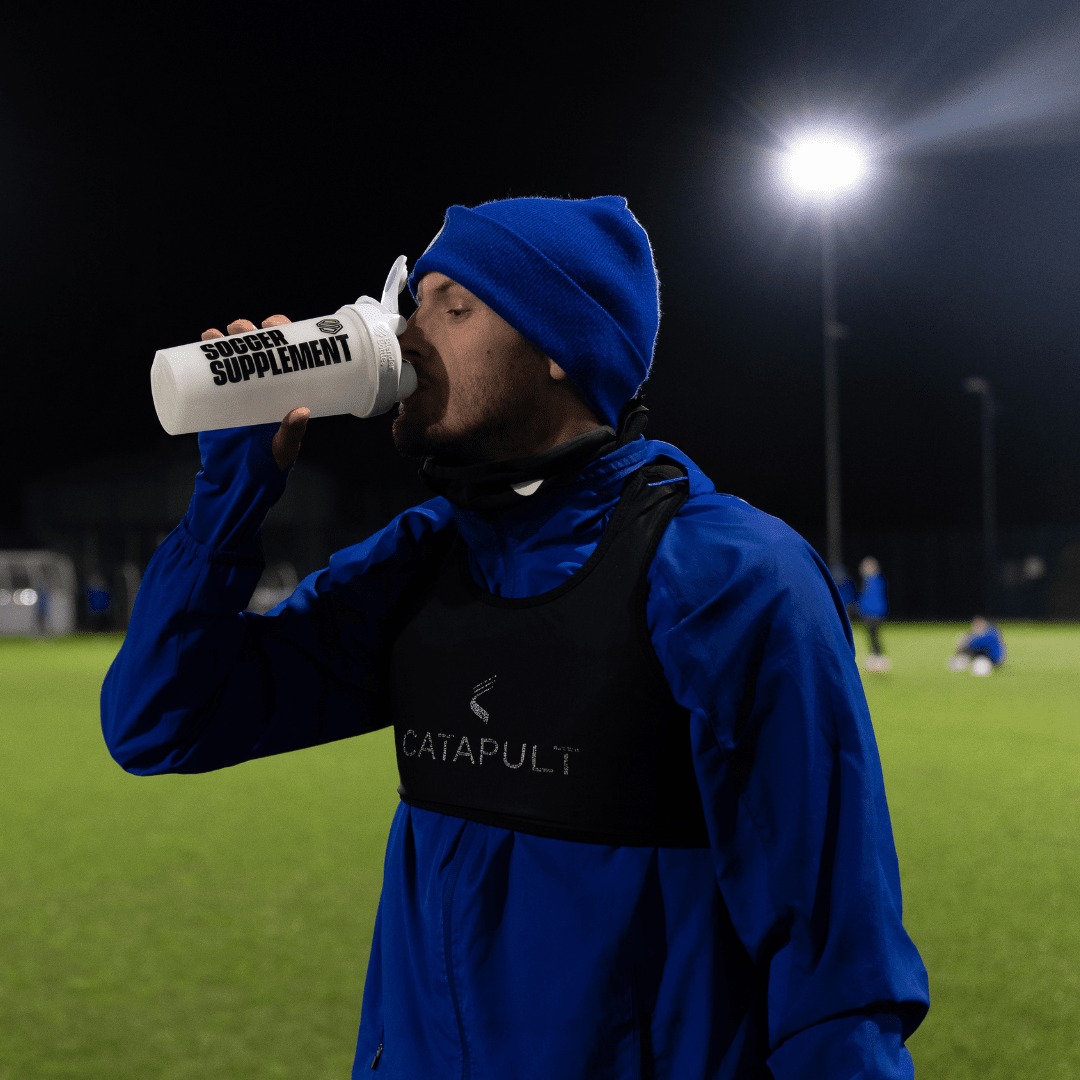Carbohydrate Mouth Rinsing for Footballers: a Useful Strategy or Another Fad?
With the World Cup feeling like a long while ago now, one aspect of it has remained; using ‘carbohydrate mouth rinsing’. A strategy practised by several teams (including England) at the tournament, it’s the act of swilling a carb sports drink in your mouth before spitting it out.
How is this meant to work?
As you will know from our previous articles (https://www.soccersupplement.com/blogs/news/162591239-first-post), carbohydrate is the key substrate used for fuel during intense exercise, and that a lack of carbohydrate in your diet, will lead to lower muscle carbohydrate stores (glycogen). When this is the case, the body is forced to rely more on fat as a fuel source, which can’t be burned quickly enough to support intense exercise. So what eventually happens is that you’re forced to slow/fatigue because of these limited fuel stores.
However, in the last 15 years, researchers have shown that ingesting carbohydrate can be beneficial to bouts of intense exercise even the athlete is not at risk of depleting their glycogen stores.1 This had scientists scratching their heads, wondering how carbohydrates could exert a positive effect on performance if they’re not helping fuel it.
The answer lies in the brain. When we ingest a carb drink during exercise, functional magnetic resonance imaging (fMRI) shows that activity in certain areas of the brain involved in reward and motor output are increased.2 In other words, carbohydrate is ‘sensed’ in the mouth by the brain, and the brain signals the muscles they might potentially work harder.

Who does this benefit?
The research in this area has largely focussed on cycling time trial performance lasting approximately one hour. On the whole, carb mouth rinsing brings about performance improvements in such trials of around 2-3%, making it a worthwhile strategy for such athletes.
For all-out efforts of short duration, however, carb mouth rinsing doesn’t seem to make any difference. This included three studies on male and female footballers performing single or repeated short sprints (~20-40m).3
On the other end of the performance spectrum, and to my knowledge, no research has yet been conducted on footballers over a 90-minute game, or any length of time for that matter. There are at least three time to exhaustion studies involving cycling or running, suggesting modest improvements with carb mouth rinsing during such protocols.4 However, given the poor reliability of time to exhaustion studies compared to time-trial performance, it remains to be determined whether carb mouth rinsing would be beneficial during exercise durations limited by muscle carbohydrate stores (> 90 mins).5
Practical application
Given that carbohydrate mouth rinsing can improve intense exercise lasting approximately 30-60 minutes, it’s a strategy worth trying under such conditions, especially if the aim is to restrict energy intake to improve weight loss. Susceptibility to stomach upset is another potential benefit to rinsing rather than swallowing.
Since muscle carbohydrate stores would be depleted by approximately 90% by the end of a 90 minute match, withholding carb ingestion during this time would very likely hinder performance, and certainly would if the game goes into extra time. Besides compromising energy substrate supply during a game, spitting out carb-electrolyte drinks may also compromise fluid and electrolyte balance during a match. As such, I would not recommend that footballers replace normal during-match nutrition guidelines in favour of carb mouth rinsing.
References
1.Desbrow, B., Anderson, S., Barrett, J., Rao, E. & Hargreaves, M. Carbohydrate-electrolyte feedings and 1h time trial cycling performance. Int. J. Sport Nutr. Exerc. Metab. 14, 541–549 (2004).
2.Chambers, E. S., Bridge, M. W. & Jones, D. A. Carbohydrate sensing in the human mouth: Effects on exercise performance and brain activity. J. Physiol. 587, 1779–1794 (2009).
3.de Oliveira, J. J. et al. Influence of Carbohydrate Mouth rinse on Sprint Performance: A Systematic Review and Meta-Analysis. J. Exerc. Physiol. Online 20, 88–99 (2017).
4.Peart, D. J. Quantifying the Effect of Carbohydrate Mouth Rinsing on Exercise Performance. J. strength Cond. Res. 31, 1737–1743 (2017).
5.Currell, K; Jeukendrup, A, E. Validity, Reliability






